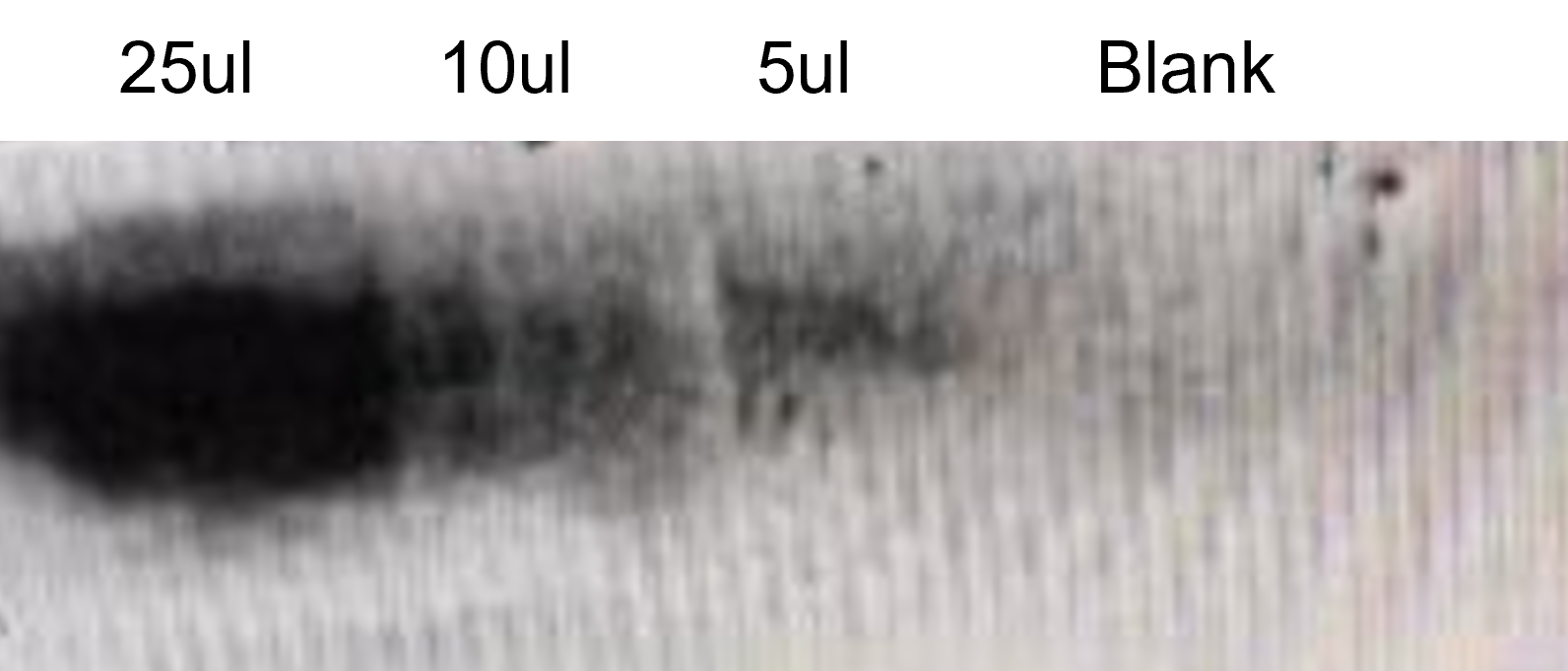Difference between revisions of "Part:BBa K3895012"
(→Results) |
|||
| (One intermediate revision by the same user not shown) | |||
| Line 4: | Line 4: | ||
Bt toxins refer to the toxic proteins produced by insect pathogenic bacteria ''Bacillus thuringiensis''[1]. | Bt toxins refer to the toxic proteins produced by insect pathogenic bacteria ''Bacillus thuringiensis''[1]. | ||
| − | This part was adjusted from | + | This part was adjusted from SZ-SHD 2020's bt toxin Cry7Ca1 (<partinfo>K3686010</partinfo>) for tobacco wheat instant expression, where Cry7Ca1 is a differentiate of Bt toxins with a molecular mass of 129kDa, recently isolated from Bt strain BHT-13. Cry7Ca1 is connected with GFP (<partinfo>E0040</partinfo>),and constructed into pCAMBIA1301 vector. |
| − | [[File:T--SZ SHD--cryjpg.png|center|350px|thumb|'''Figure 1.''' Plasmid construction of pCAMBIA-Cry7Ca1-eGFP | + | [[File:T--SZ SHD--cryjpg.png|center|350px|thumb|'''Figure 1.''' Plasmid construction of pCAMBIA-Cry7Ca1-eGFP.]] |
===Protocol=== | ===Protocol=== | ||
| Line 50: | Line 50: | ||
{|border=0 width="90%" align="center" | {|border=0 width="90%" align="center" | ||
|-align="center" | |-align="center" | ||
| − | |[[File:T--SZ SHD--cry1.jpg|400px|thumb|center|'''Positive''' ]] | + | |[[File:T--SZ SHD--cry1.jpg|400px|thumb|center|'''Figure 2(a). Positive results showed successful expression of pCAMBIA-Cry7Ca1-eGFP in Nicotiana''' ]] |
| − | |[[File:T--SZ SHD--cry2.jpg|400px|thumb|center|'''Negative''' ]] | + | |[[File:T--SZ SHD--cry2.jpg|400px|thumb|center|'''Figure 2(b). Negative results without Cry7Ca1-eGFP in Nicotiana benthamiana.''' ]] |
|} | |} | ||
| + | |||
| + | [[File:T--SZ SHD--lyj2.jpg|300px|center]] | ||
| + | '''Figure 3.''' Western Blot result of Cry7Ca1-eGFP protein express in wheat leaf. | ||
| + | [[File:T--SZ_SHD--lyj1.jpg|300px|center]] | ||
| + | '''Figure 4.''' Fluorescence microscopy images of the CDP transfected on plant leaf. 1/3. Blank control group with CDP only; 2/4. CDP with 10ng/ul plant expressing vector. | ||
<!-- Add more about the biology of this part here | <!-- Add more about the biology of this part here | ||
Latest revision as of 17:16, 21 October 2021
Insecticidal protein
Bt toxins refer to the toxic proteins produced by insect pathogenic bacteria Bacillus thuringiensis[1]. This part was adjusted from SZ-SHD 2020's bt toxin Cry7Ca1 (BBa_K3686010) for tobacco wheat instant expression, where Cry7Ca1 is a differentiate of Bt toxins with a molecular mass of 129kDa, recently isolated from Bt strain BHT-13. Cry7Ca1 is connected with GFP (BBa_E0040),and constructed into pCAMBIA1301 vector.
Protocol
1. Transfection of pCAMBIA-Cry7Ca1-eGFP vector through Carbon dots nanocomposite (CDP) to Nicotiana benthamiana
Coupling CDP with plant expressing vector Mix the following ingredients:
| Ingredients | Volumn |
|---|---|
| MES buffer(50X) | 10ul |
| CDP(50X) | 10ul |
| DNA(237ng/ul >10ng/ul final con) | 22ul |
| 10% glycerol | 25ul |
| ddH2O | 433ul |
| total | 500ul |
Gently mix and incubate at 37℃ for 30min.
2. Brush the mixture gently on the leaf of Nicotiana benthamiana(leaf length>10cm,Growing well) ,mark the area of brushing
3. Put the plant back in the light incubator(28℃,12h light 12h dark), repeat the process for four days at 3:00pm each day(2/4)
Results
Fluorescence microscope to observe the GFP in leave
Figure 3. Western Blot result of Cry7Ca1-eGFP protein express in wheat leaf.
Figure 4. Fluorescence microscopy images of the CDP transfected on plant leaf. 1/3. Blank control group with CDP only; 2/4. CDP with 10ng/ul plant expressing vector.
Sequence and Features
- 10COMPATIBLE WITH RFC[10]
- 12COMPATIBLE WITH RFC[12]
- 21COMPATIBLE WITH RFC[21]
- 23COMPATIBLE WITH RFC[23]
- 25INCOMPATIBLE WITH RFC[25]Illegal NgoMIV site found at 205
Illegal NgoMIV site found at 220
Illegal NgoMIV site found at 1567
Illegal NgoMIV site found at 1828
Illegal NgoMIV site found at 1990 - 1000INCOMPATIBLE WITH RFC[1000]Illegal BsaI.rc site found at 4079
References
Wu, Y., Lei, C. F., Yi, D., Liu, P. M., & Gao, M. Y. (2011). Novel Bacillus thuringiensis δ-endotoxin active against Locusta migratoria manilensis. Applied and environmental microbiology, 77(10), 3227-3233.





